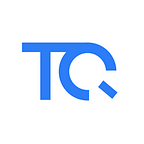Contract Metadata on Tezos
Developers on Tezos have increasingly been adopting and testing smart contracts based on the token standards FA1.2 (TZIP-7) and FA2 (TZIP-12). As more contracts are deployed, the importance of indexing and discoverability has increased as wallet integrators look for scalable ways to support tokens and contracts generally.
In this post, we briefly introduce TZIP-16: a standard for accessing contract metadata in JSON format in on-chain storage or off-chain using IPFS or HTTP(S).
The goal of TZIP-16 is to provide a standardized location and shape of contract metadata, easing the integration, discoverability and querying of Tezos smart contracts for applications, explorers, and wallets. It enables developers to focus more on product development and less on questions of how to integrate with wallets and external parties (e.g. wallets).
To enhance the experience, we also introduce TZComet, a still-in-development editor, validator, and explorer for contract metadata on Tezos.
And we’ve created this merge request to add sub-commands to display and use contract metadata in tezos-client according to the standard.
A special thanks to TZIP-16 reviewers: Baking Bad, Kukai, Spruce, SmartPy, Marigold/LIGO, Tezos Domains, Arthur Breitman, ECAD Labs, Serokell, Cryptonomic, Nomadic Labs, and Archetype for feedback on TZIP-16!
Key Resources
- TZIP-16: Contract Metadata proposal
- TZComet:A work-in-progress contract metadata editor, validator, and explorer (Github repository)
- Merge Request to add support in Tezos-client
- Baking Bad’s blog post about off-chain events and token indexing using TZIP-16
Standardizing Contract Metadata
Many smart contracts need to define metadata that is not included in the contract script, whether corresponding to the contract code itself (e.g. to reason about the contract’s behavior, interface, storage, etc.) or how it relates to off-chain data (e.g. a token representing artwork).
TZIP-16 proposes a method of finding specific metadata about the contract: provenance information (authorship), references to other implementation standards, off-chain views (Michelson functions or REST API calls to query the contract), and enables developers to create their own custom extensions (e.g. a multimedia metadata extension).
This metadata is described using a JSON format and a URI scheme is used to locate the metadata, whether on-chain (as in contract storage) data or off-chain (as in web-services or IPFS).
By adopting this standard, smart contract authors and wallet/indexer implementers can agree on both the location and contents of a contract’s metadata.
TZComet: A Playground for TZIP-16
Developers should be able to try out the TZIP-16 standard, which is why we are introducing TZComet, a contract metadata viewer for Tezos. As displayed below and on github, TZComet contains Metadata JSON Validation, URI Validation, and a Michelson PACK Parser. It will confirm whether the metadata/URI of a contract is valid and if a contract can be parsed by Michelson (the Tezos smart contract language).
Integration with Tezos-client
In order to make using TZIP-16 more fluid, we’ve created a draft merge request to integrate it directly into the tezos-client. It’s important to note that in its current state, this is not yet included in the main Tezos repository. The integration will enable a user to retrieve metadata for a contract and additionally call off-chain views.
The Future of TZIP-16
Next on the horizon, is a focus on applying TZIP-16 to popular smart contracts (especially in token API TZIPs such as TZIP-7 and TZIP-12) and extending TZIP-16 by specifying off-chain events (perhaps in its own TZIP) as well as multi-contract off-chain views, which are off-chain-views defined over more than one contract’s storage.
As noted, TZIP-16 provides a path forward on off-chain events, a common request from those indexing Tezos smart contracts and especially tokens. Such events include tracking all token transactions and providing token balance receipts, giving holders the ability to at any time a) queue balances and b) predetermine the outcome of a complicated transaction.
As with prior releases, we actively welcome feedback on TZIP-16, particularly as we and others in the community work to implement it for tokens and other popular applications. Reach out if you’d like to get involved!
